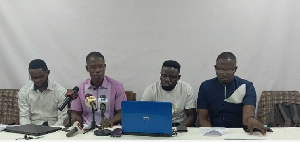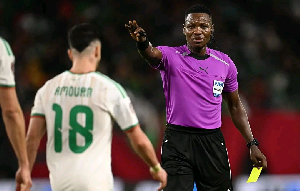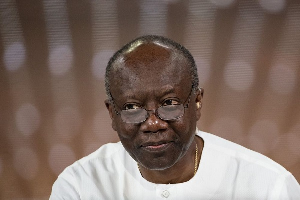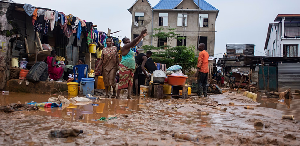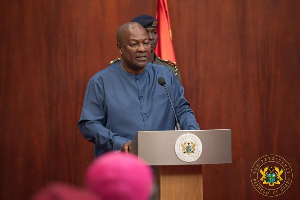A Civil Society Organization committed to promoting transparency, fairness, and democratic values in Ghana's elections, has highlighted the need for urgent reforms in the Ghana Police Service.
This came up during a press conference held at the International Press Center.
The event aimed to present the organization's comprehensive report on security issues observed during the 2024 general elections.
David Kumi Addo, Executive Director of Care Ghana, led the press conference, highlighting the need for urgent reforms in the Ghana Police Service.
According to Addo, the 2024 general elections presented an opportunity for Ghana to demonstrate its democratic maturity.
However, the organization's observations revealed lapses, particularly in the management of election security. These shortcomings raise serious concerns about the Ghana Police Service's role under the leadership of the Inspector General of Police (IGP), Dr. George Akuffo Dampare.
"The decision by Dr. George Akuffo Dampare, IGP, to supervise the unlawful act of re-collation is troubling," Addo said.
He emphasized that the police's involvement in supervising the re-collation exercise without a court order demonstrates a blatant disregard for the rule of law. This action directly contradicts the IGP's duty to uphold the legal framework governing elections and raises serious questions about his commitment to the rule of law.
The report presented by Care Ghana highlighted several key observations, including election-related crimes, illegal military arrests and intimidation, and the failure to address vote-buying and selling.
"The inability of the Election Security Task Force to combat criminal activities effectively resulted in several violent incidents during the elections," Addo noted.
Notable among these incidents were the shooting incidents in Awutu Senya East, Nyankpala, and Tolon constituencies, which led to the loss of lives and property, injuries, and heightened tensions.
Care Ghana also expressed concerns over the repeated incidents of military overreach in electoral matters.
"Such actions not only threaten Ghana's democracy but also erode the public's trust in state institutions tasked with maintaining law and order," Addo said.
The organization emphasized that the military's involvement in unauthorized arrests and intimidation of civilians disrupted the electoral process and instilled fear among voters in certain areas.
Furthermore, Care Ghana criticized the Ghana Police Service's lack of interest in curbing vote-buying and selling.
"The persistent practice of vote-buying and selling, particularly in Ayawaso Special Voting and Effiduase/Asokore constituencies, highlights the Ghana Police Service's lack of interest in addressing this electoral malpractice," Addo said.
This issue, left unchecked, continues to erode the credibility of Ghana's electoral process.
In light of these findings, Care Ghana proposed several recommendations to address the challenges and improve future electoral processes. These recommendations include:
1. Strengthening the Election Security Task Force: The task force must adopt a proactive approach to crime prevention during elections. Adequate training and resources should be provided to ensure officers can manage electoral violence effectively and impartially.
2. Independent Oversight of Security Operations: The police front should be restructured to allow for dynamic, patriotic, and non-partisan leadership for effective security operations. This will ensure accountability and prevent undue interference from political actors.
3. Combating Vote-Buying and Electoral Malpractices: The Ghana Police Service must develop and enforce stringent measures to detect and penalize vote-buying and selling. Public awareness campaigns should also be intensified to discourage these practices.
4. Enhanced Collaboration Between Security Agencies: The Ghana Police Service and the military must establish clear guidelines for collaboration during elections. Unauthorized military involvement in civilian electoral matters should be strictly prohibited.
5. Respect for Judicial Processes: The IGP and the Election Security Task Force must ensure strict compliance with court orders and judicial processes to uphold public trust in the rule of law.
Addo further emphasized that Ghana's democratic consolidation depends on the integrity and credibility of its electoral security.
"The lapses observed during the 2024 general elections underscore the urgent need for structural reforms in the Ghana Police Service to promote modern, non-partisan leadership," he said.
Regional News of Wednesday, 8 January 2025
Source: classfmonline.com
CSO raises concerns over 2024 election security lapses
Entertainment


